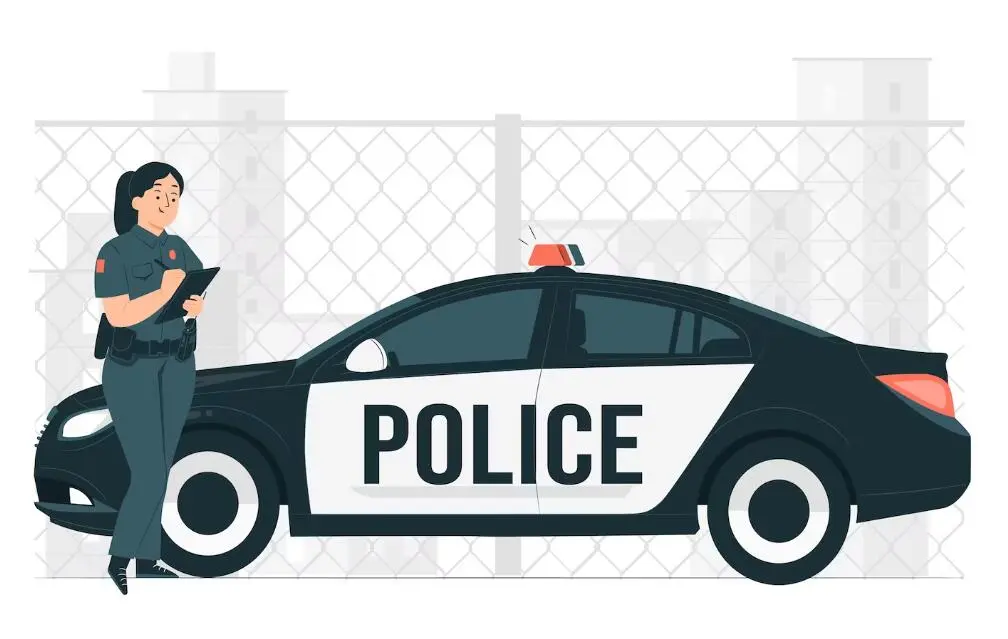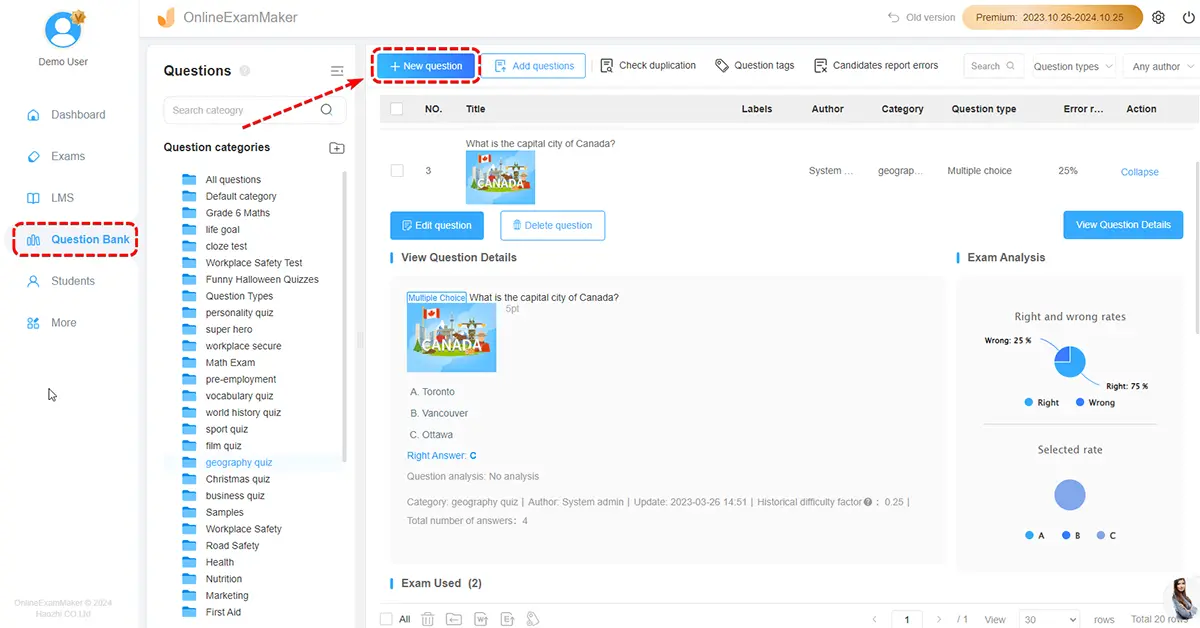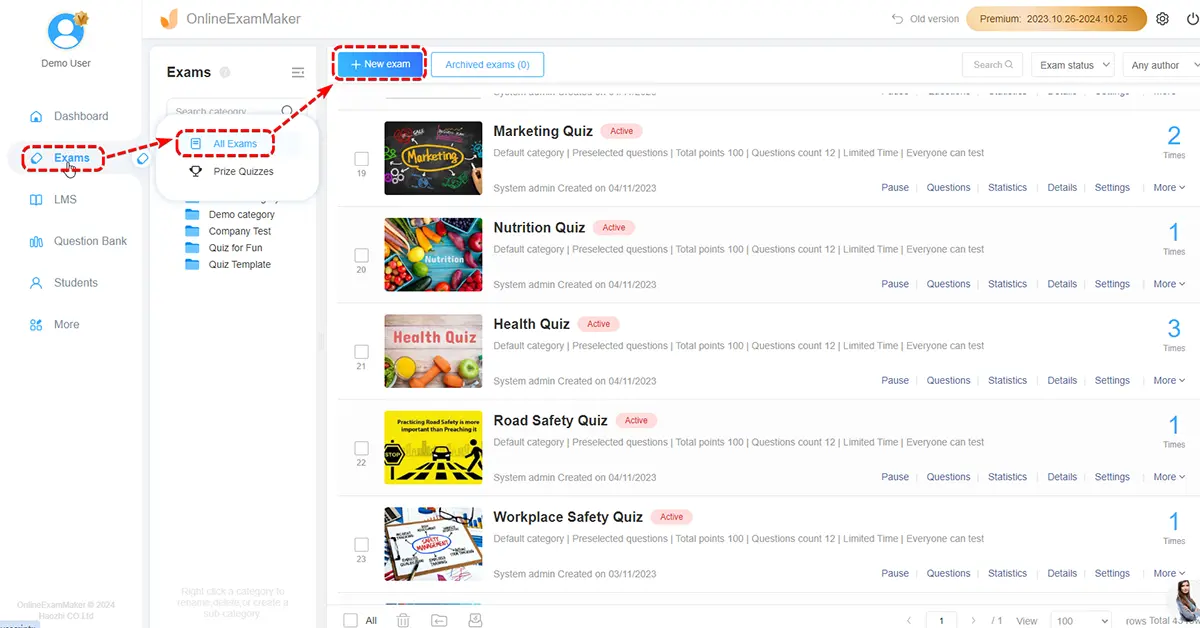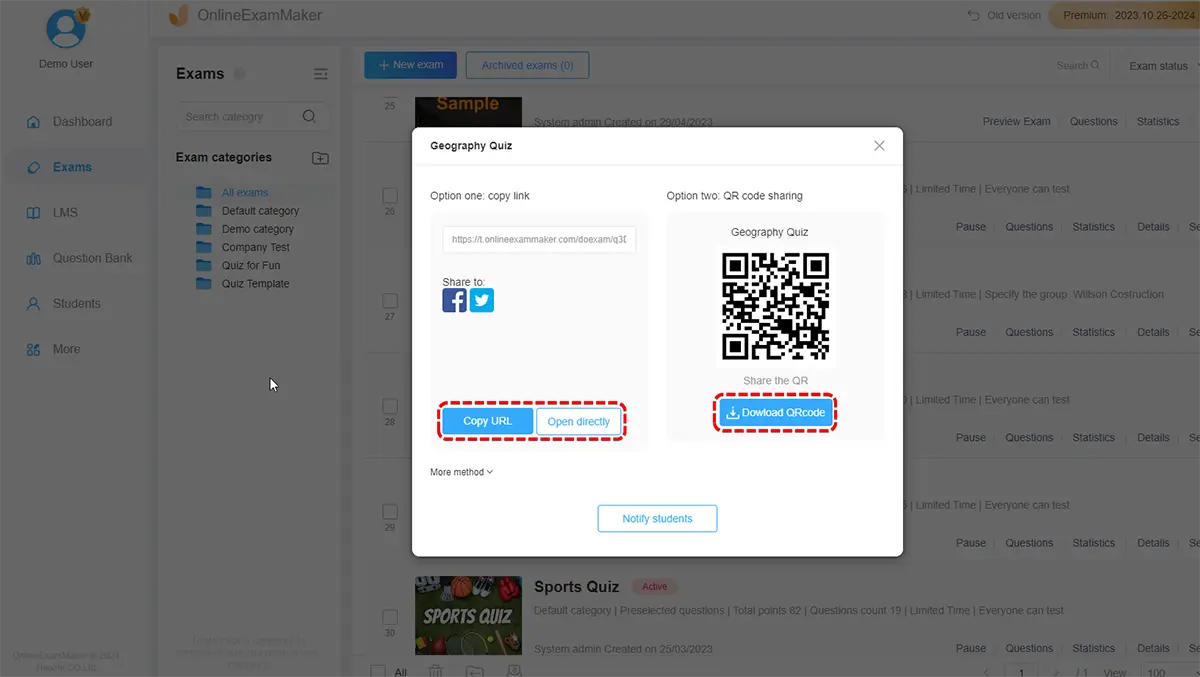Ensuring that law enforcement officers possess the knowledge and competence necessary to perform their duties effectively is a critical responsibility of government agencies. Continuous training and assessment play a pivotal role in achieving this goal.
In this post, we will explore five innovative police knowledge assessment ideas that governments can implement to enhance the competence and accountability of their police forces.
- Part 1: 5 Police Knowledge Assessment Ideas for Governments
- Part 2: OnlineExamMaker: Best Police Assessment Software for Governments
- Part 3: How to Create A Professional Police Quiz with OnlineExamMaker
5 police knowledge assessment ideas for governments
Idea 1: Scenario-Based Training and Assessment

Scenario-based training is a powerful tool for assessing police officers’ decision-making skills and their ability to handle real-life situations. Unlike traditional written tests, scenario-based assessments immerse officers in realistic situations, allowing them to demonstrate their knowledge and judgment under pressure.
Benefits of scenario-based assessments include the evaluation of critical thinking, communication, and de-escalation skills. For example, officers may face scenarios involving a potential domestic dispute, an active shooter situation, or a traffic stop with a non-compliant driver. These simulations help identify strengths and areas for improvement, enabling targeted training and development.
Moreover, scenario-based assessments can be tailored to different roles within law enforcement, ensuring that officers are proficient in the specific skills required for their assignments. This approach promotes a more holistic understanding of policing and enhances officers’ ability to adapt to dynamic situations.
Idea 2: Advanced Simulation Technologies
Advancements in technology, particularly in virtual reality (VR) and augmented reality (AR), have opened up new possibilities for police training and knowledge assessment. These advanced simulation technologies provide realistic and safe environments for officers to hone their skills.
Virtual reality allows officers to immerse themselves in lifelike scenarios, such as high-stress hostage situations or intricate crime scene investigations. Augmented reality overlays digital information on the real world, offering interactive training experiences. Both technologies can be used to assess officers’ decision-making, tactics, and response times.
Implementing VR and AR in law enforcement knowledge assessments requires careful planning, investment in appropriate equipment, and the development of customized scenarios. However, the benefits are substantial, as officers can gain valuable experience and exposure to various situations without real-world risks.
Idea 3: Continuous Competency Tracking
Ensuring that police officers maintain their knowledge and skills throughout their careers is essential for effective law enforcement. Governments can establish systems for continuous competency tracking to monitor and assess officers’ capabilities on an ongoing basis.
Such a system involves regular evaluations, both formal and informal, and utilizes data analytics to identify areas of improvement and training needs. Officers can receive targeted training and resources to address these needs, ensuring that they remain up-to-date with the latest practices and legal requirements.
Continuous competency tracking also enhances transparency and accountability within law enforcement agencies. It ensures that officers are held to high standards throughout their careers, helping to build public trust and confidence in the police force.
Pro Tip
Want to assess your learners online? Create an online quiz for free!
Idea 4: Interactive E-Learning Modules
In the digital age, e-learning has become a flexible and accessible method for training and assessing police officers. Interactive e-learning modules can engage officers in self-paced learning experiences that cater to diverse learning styles.
These modules can include multimedia elements, such as videos, simulations, and animations, to enhance engagement and comprehension. Quizzes and case studies can be integrated to assess officers’ understanding and application of knowledge.
The advantages of e-learning include flexibility in scheduling training sessions, accessibility from various devices, and the ability to update content promptly. Additionally, officers can revisit modules as needed to reinforce their knowledge, making it a valuable resource for ongoing learning and assessment.
Idea 5: Peer Review and Collaboration

Peer review and collaboration offer a unique approach to knowledge assessment within law enforcement agencies. Officers can assess each other’s performance, share insights, and collectively improve their skills.
This method fosters a sense of teamwork and accountability within the police force. Officers can learn from one another’s experiences and perspectives, leading to more effective problem-solving and decision-making.
To implement peer review effectively, governments can establish clear guidelines and processes for feedback and evaluation. Peer review can be incorporated into regular training and assessment sessions, encouraging officers to assess their colleagues’ performance constructively.
OnlineExamMaker: Best Police Assessment Software for Governments
With OnlineExamMaker software, government officers can easily enhance police assessment procedures, save time on grading, and gain valuable insights into learner performance. OnlineExamMaker grades quizzes automatically, and gives you access to detailed exam reports and statistics instantly. The insightful analytics help teachers and trainers gain valuable insights, enabling them to optimize their teaching methods.
Create Your Next Quiz/Exam with OnlineExamMaker
How to Create A Professional Police Quiz with OnlineExamMaker
Step 1: Get started with OnlineExamMaker platform >
Step 2: Prepare police quiz questions in a Word or Excel file, then upload in bulk.

Step 3: Create a new quiz, fill quiz information to continue.

Step 4: Save & publish the assessment, then share it to quiz takers.

Conclusion
The competence and accountability of law enforcement officers are essential for maintaining public safety and trust. Governments have a crucial role in ensuring that police forces are equipped with the knowledge and skills necessary to fulfill their duties effectively. By exploring and implementing innovative knowledge assessment ideas such as scenario-based training, advanced simulation technologies, continuous competency tracking, interactive e-learning modules, and peer review, governments can promote a culture of continuous improvement and professionalism within their police agencies. These strategies not only benefit individual officers but also contribute to safer and more accountable communities.
